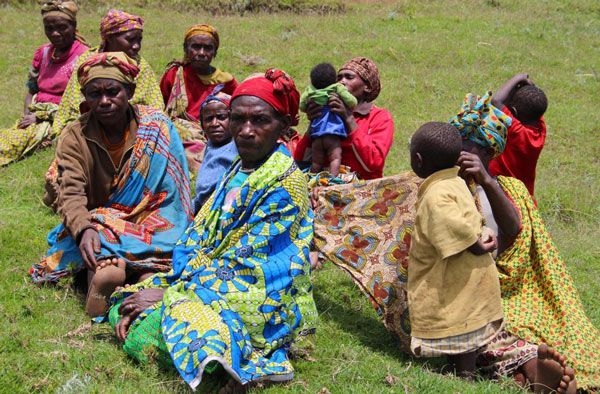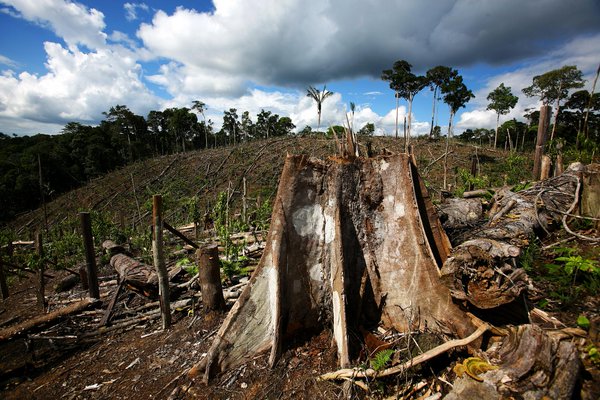
Global study that seeks to understand how environmental change is impacting indigenous communities
Kampala, Uganda | RONALD MUSOKE | The Batwa, a small indigenous forest-dwelling community found in Southwestern Uganda, are set to benefit from a new research project that seeks to understand the emotional effects of environmental change experienced by the world’s indigenous groups.
The project which is set to begin in October this year seeks to explore the relationship between mental health and ecosystem health among small indigenous groups like the Batwa. It will be undertaken by the Minority Rights Group International (MRG), a London-based human rights organisation that works to secure the rights of ethnic, religious and linguistic minorities and indigenous peoples around the world.
The project, “the Land Body Ecologies Research Group (LBE)”will undertake a two-year research project that brings together a team of human rights activists, mental health researchers, scientists, and artists to research the phenomenon of “solastalgia”— the emotional or existential suffering caused by environmental change. It is sometimes described as “the feeling of homesickness while you are still at home.”
Through the lens of solastalgia, the team aims to understand the lived experiences of land trauma on marginalised and indigenous communities. The initiative will be led by the award-winning interactive arts studio Invisible Flock, and will have a dynamic research space in London, United Kingdom.
According to the Minority Rights Group International (MRG)’s Samrawit Gougsa, indigenous and minority communities around the world are, for instance, the least culpable in the global climate crisis, yet they are suffering very much from the ongoing destruction of their homes and the adjacent environment upon which they depend for survival.

Gougsa notes that since indigenous communities like the Batwa live far from sites of power where decisions affecting their land and environment are made, their voices are continuously disregarded.
“A prime example of this is the current global call to turn 30% of the world’s surface into ‘protected areas’ by 2030. Gougsa says this development, if implemented will further displace hundreds of millions of indigenous people and traditional landowners.
“Why aren’t the communities who will face the repercussions of this target being meaningfully consulted? Our project will reverse this trend of exclusion, centering on the communities’ lived experiences and amplifying their voices for the world to hear,” she said.
Alongside the Batwa, other minority indigenous communities included in the project are the Ogiek in Kenya, the Sámi in Finland, the Pgak’yau (Karen) in northern Thailand, and the communities living in the buffer zones of the Bannerghatta National park in India.
The Batwa community is just about 6,000 meaning that unless they are well protected, they could end up being wiped off the map of Uganda. Instead, they remain one of the most marginalized communities in the country.
In the 1930s, the British colonial government declared Uganda’s forests as conservation “reserves.” This declaration marked the beginning of the suffering of the Batwa. The community which had lived in forests for centuries suddenly found itself landless.
Although some of them resisted the evictions and continued living inside the forest reserves, this only went on until the 1990s when the Batwa were finally evicted from Mgahinga, Bwindi and Echuya tropical rain forests to create national parks.
Today, the Batwa are mostly landless labourers. They often live as squatters on remote, hilly and isolated locations. They are already experiencing the impact of climate change—including variability in rainfall patterns; increased cases of floods and land erosion.
These environmental changes have caused food insecurity and increased incidence of diseases such as malaria, malnutrition, stomach disorders and respiratory diseases.
Since they are marginalized, they have not been able to adapt to this clanging climate. For instance, they cannot afford to buy food to compensate for low agricultural output or building materials to build resilient houses.
In April this year, political and community leaders from the Southwestern region of Kigezi asked the central government to resettle the Batwa community in areas where they can live dignified lives.
Speaking during the release of a study by Mbarara University of Science and Technology titled, “Understanding the Marginalized People of Southwestern Uganda,” Gard Shemajere, the executive director of the Batwa Development Organization said the Batwa want to be resettled near forests and get fertile land for agriculture.
The post Batwa community included in global environment study appeared first on The Independent Uganda:.
from The Independent Uganda: https://ift.tt/3gL6Isk
0 Comments